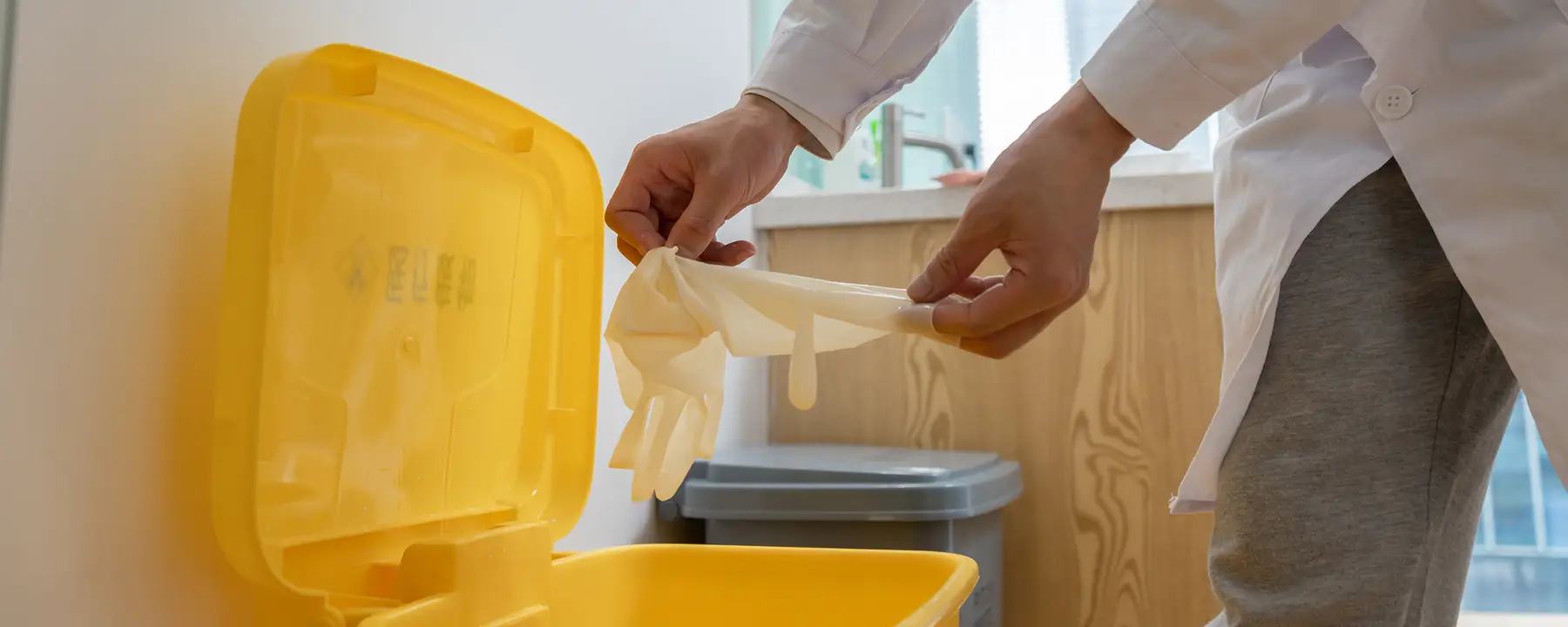Assessing the global recycling ecosystem to evaluate opportunities for large-scale hospital waste recycling
Objective
To determine the opportunity and barrier to entry for recycling medical waste globally for a medical device company, Medtronic.
Approach
RTI determined the municipal solid waste recycling rates for 204 countries and territories and leveraged a custom-built model to predict recycling rates for countries with no data. RTI then evaluated 17 countries in depth to determine which countries are ready for medical recycling, leveraging insights into available recycling infrastructure, global legislation and medical policy change that encourages or challenges recycling initiatives.
Impact
Our custom-built model enabled us to create a comprehensive dataset for global recycling and provided Medtronic with a deeper understanding of medical waste recycling opportunities and challenges.
The complexities of global medical waste
With a reported 5.25 trillion pieces of plastic debris polluting the ocean, global waste management is in a state of emergency. Addressing the plastic pollution crisis, specifically related to medical waste, is a difficult and complex issue. Medical treatments are often reliant on plastic-based products with few acceptable alternatives. A 2018 survey found that single-use plastics, including syringes, disposable covers, IV bags, and face masks, account for 20% of medical waste in U.S. hospitals. Typically, recycling is highlighted as a key solution; however, medical waste brings its own unique set of challenges. It can be contaminated, cytotoxic, or generally offensive. Because of this, most medical waste is incinerated or disinfected and sent to landfills.
COVID-19 further revealed and exacerbated problems related to medical waste management. A 2021 academic publication estimated that pandemic-associated plastics account for ~1.5% of total plastic washed into the ocean. The combination of disrupted supply chains, along with an increase in medical packaging and domestic waste, resulted in the failure of the current waste management systems. For example, rural communities in the United Kingdom experienced a 300% increase in mismanaged waste.
A medical device company seeking medical waste management guidance
The overwhelming amount of waste produced has the medical technology industry asking “how can the plastic waste problem be fixed?” Medtronic, an global medical device company, worked with RTI Innovation Advisors, the Center for Environmental Health Risk & Sustainability, the Center for Applied Economics & Strategy, and RTI India to better understand global medical waste recycling opportunities and barriers, including differences from country to country as well as across urban and rural locations. This study ultimately answers the question of whether progressive steps towards recyclable products and packaging would lead to an actual diversion of medical waste from landfills and oceans.
Creating a comprehensive dataset for global recycling
To answer this question, RTI first provided insights into recycling at a global level. We started by aggregating the best global datasets for municipal solid waste recycling rates (e.g. World Bank and UNEP) and improved them by collecting additional supplemental data from one-off reports. However, even with this additional research, many gaps were left for countries where data is not available.
To overcome this, we custom-built a model trained on available data that predicts recycling rates in countries without data. In total, we identified municipal solid waste recycling rates for 204 countries and territories, creating one of the most comprehensive datasets to date. We found that globally, the average recycling rate is approximately 14%. These rates enabled us to evaluate if available infrastructure exists to handle a potential increase in recyclables from hospitals.
Additionally, in many countries the informal sector plays a critical role in recycling, which is not always accounted for in official reports. This informal sector consists of individuals and groups, often marginalized by society, who often operate in unsafe conditions to earn an income by collecting and selling recyclables.
Medical waste recycling barriers
Second, RTI evaluated 17 countries across all continents to evaluate their ability to uptake and handle an increase in medical waste recycling. A key finding was that recycling is not merely a technology problem – it is a systems problem – and, therefore, requires an understanding of all aspects in the system. We focused on six conditions for systems change including: existing recycling infrastructure; current and future federal, state as well as hospital level policies; existing recycling practices within the country; financial incentives; and grassroots demand for sustainable management of medical waste.
During this analysis, our team addressed barriers Medtronic would face in revolutionizing the medical recycling industry. First, the medical device industry faces the challenge of existing legislation and policy that either enforces medical waste regulations that do not mandate recycling or existing regulation that inhibit medical waste. Second, access to recycling infrastructure is a key barrier in many rural hospitals regardless of what country they are in. Last, there is a perceived cost associated with switching to recycling, both from a time and financial perspective, despite many case studies showing medical waste recycling can often save hospitals money.
Countries ready for medical waste recycling
Across all 17 countries evaluated, the United Kingdom and Germany were most likely to increase their recycling of medical waste soon. Many countries, such as Mexico and Jordan, are still focused on building out robust municipal solid waste recycling infrastructure and/or have highly restrictive policies for medical waste management, which prohibit recycling in most cases. Countries like these are unlikely to increase their medical waste recycling rate soon. Although the outlook on the medical waste recycling ecosystem looks dim globally, there are a few bright spots. Targeted work in the United Kingdom and Germany can become successful case studies to be leveraged in more countries as their recycling ecosystem comes up to speed.
Additionally, there are on-going conversations about medical recycling policy changes that could significantly shift the ecosystem dynamics. For example, the UN Environment Program is addressing the need to recycle medical waste through the Global Plastics Treaty, a treat among nearly 200 nations to end the plastic pollution crisis. This treaty would encourage recycling in medical settings that did not previously consider recycling opportunities.
The future of medical technology recycling on a global scale
Our insights into the global ecosystems of medical recycling provided a deeper understanding of recycling opportunities for Medtronic to pursue. While there are still many barriers to overcome (including a lack of infrastructure and accountability, insufficient policies, negative perceptions of costs, and the need for both behavior change and for multiple stakeholders to act together), we identified countries with immediate opportunities to leverage sustainable medical recycling with the goal of diverting medical waste from landfills and oceans.
“This data highlights the fact that products must be designed to minimize waste being put into the system,” said Samantha Smith, the Director of the Sustainability Development Center at Medtronic. “We often think of solving the waste problem with full access to ideal waste disposal technologies. This research highlighted the global disparities to disposal access. The MedTech industry must design global infrastructure for regions with limited recycling access to truly move the needle in contributing to the climate crisis.”
Global insights on the medical recycling environment are one of many steps towards reducing plastic pollution. RTI is dedicated to supporting our clients who are creating a more sustainable future for the planet and future generations.
Learn more about RTI Innovation Advisors.
- Medtronic







